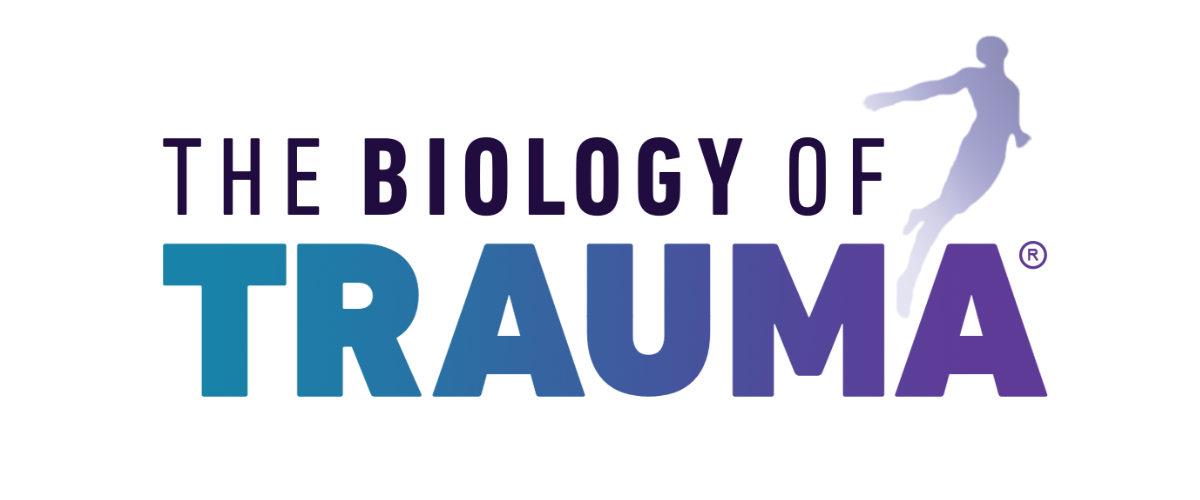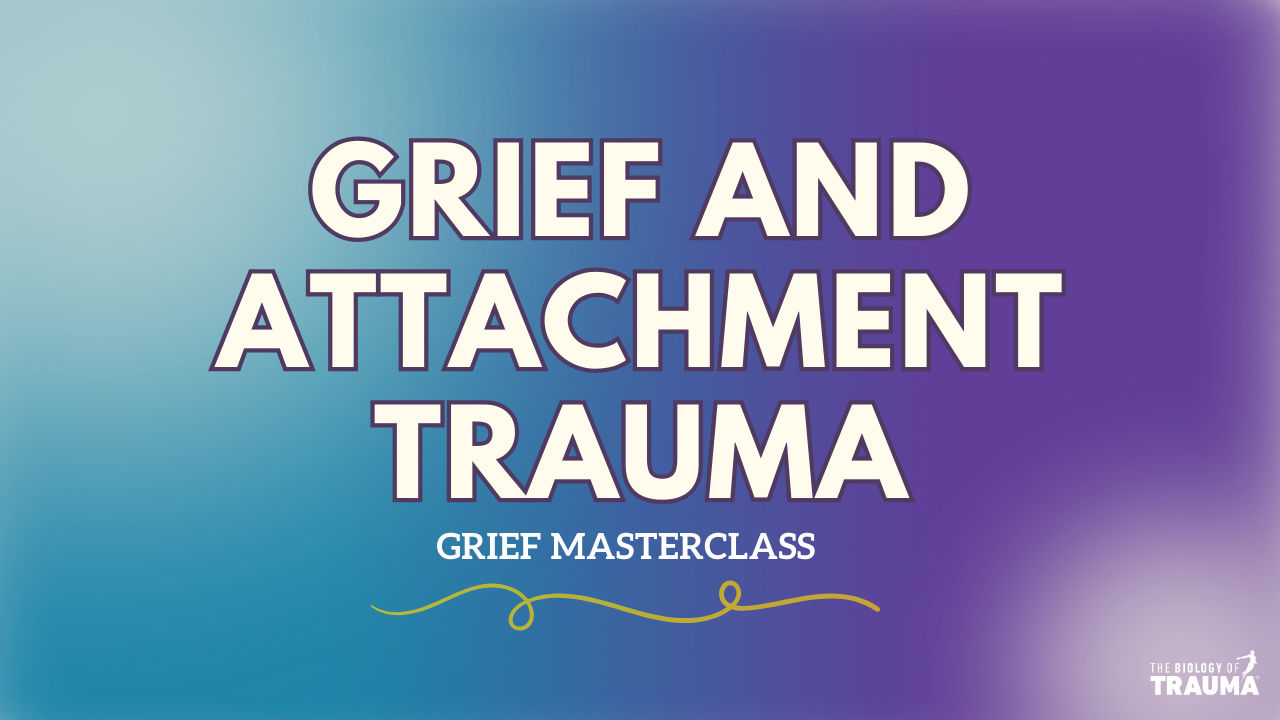
Healing Hearts & Healing Bodies:
Unlocking the Attachment - Health Connection
Biology of Trauma® Online Summit

Attachment, Grief and Parts





Grief and Attachment Trauma
The most challenging types of grief (attachment, absent)
Training with Dr. Aimie
You will learn:
- The three most challenging types of grief: attachment grief, absent grief, and heart shock grief
- How grief impacts the brain and body physically and neurologically
- Why grief feels like a craving and causes anticipatory grief and bracing patterns
- The three dimensions of grieving: remapping time and space, and releasing grief's attachment to survival
- Tools and techniques for feeling grief sensations safely in the body
- Parts work to access and work with protector parts blocking grief
- How to bring life back into the diaphragm and gut to resolve inflammation and get unstuck from grief
Want unlimited access to all summit content?
Watch at your own pace, dive deep into expert sessions, and unlock ongoing access to exclusive materials. Don't miss out—click below to explore your options!
Upgrade Here00
DAYS
00
HOURS
00
MINS
00
SECS
Grief and Trauma
Interview with Dr. Gabor Maté
You will learn:
- How childhood trauma and stress can lead to chronic physical illnesses like autoimmune diseases through increased inflammation and other physiological pathways
- How emotions like anger, grief, and stress impact the immune system and physical health
- How traumatic experiences can change our physiology and promote disease states rather than just being genetically determined
- Alternative approaches to treating chronic illnesses beyond just medication by addressing the root causes of trauma and stress
- Connect with your body safely to observe impacts on physical symptoms
- The importance of safety and supportive environments for processing grief and trauma
Want unlimited access to all summit content?
Watch at your own pace, dive deep into expert sessions, and unlock ongoing access to exclusive materials. Don't miss out—click below to explore your options!
Upgrade Here00
DAYS
00
HOURS
00
MINS
00
SECS
Grief Parts Work
An Experiential Guided Exploration
You will learn:
- How to understand your own trauma through parts work and attachment theory
- What "parts" are and how they form from childhood experiences
- How to use somatic exercises to connect with different parts of yourself
- Techniques for attuning to your body sensations and parts' emotions
- Steps for befriending parts of yourself through empathy, listening, and support
- Applying internal family systems and parts work to your own healing journey
00
DAYS
00
HOURS
00
MINS
00
SECS
Attachment Pains and Adaptive Parts
Training with Dr. Aimie
You will learn:
- The impact of attachment pain on regulation, inner peace, trust and safety
- How parts of the self can emerge in response to early life experiences
- How to access deep-seated trust and safety issues through touch and neck support
- How parts of the self can adapt to attachment trauma through self-sabotage and lack of forward movement
- Unconscious patterns of self-doubt, insecurity, and people-pleasing that develop
- Associated health conditions of different attachment pains
- Steps for integrating somatic, parts and biology work to heal the authentic self
- Developing self-awareness and leadership skills to connect with inner parts and live authentically
- Using touch and containment to help parts feel safe, heard and held
- Creating new experiences and memories of safety for parts through physical contact
Want unlimited access to all summit content?
Watch at your own pace, dive deep into expert sessions, and unlock ongoing access to exclusive materials. Don't miss out—click below to explore your options!
Upgrade Here00
DAYS
00
HOURS
00
MINS
00
SECS
Using the NARM Style Assessments to Assess Trauma Patterns
Case Study with Dr. Aimie
You will learn:
- How early childhood experiences shape attachment styles and regulation of the nervous system
- The importance of regulation and attunement in maintaining homeostasis and survival as an infant
- How predictable, trustworthy responses to infants' needs can lead to regulation and a sense of safety
- Adaptation patterns in early life that shape needs and expectations as an adult
- Low energy levels and grief patterns that develop from early life experiences
- Using assessment tools to identify areas of developmental delay and determine intervention starting points
- How to repair attachment disruptions somatically and address parts identified in assessments
00
DAYS
00
HOURS
00
MINS
00
SECS
A Compilation of Success Stories
Want unlimited access to all summit content?
Watch at your own pace, dive deep into expert sessions, and unlock ongoing access to exclusive materials.
Don't miss out—click below to explore your options!
UPGRADE HERECOLLECT YOUR HANDOUT HERE:
Attachment Pain Guide
YOUR BIOLOGY OF TRAUMA® HOST:
Dr. Aimie Apigian
Dr. Aimie is a double Board-Certified medical physician who specializes in trauma, attachment, addictions and addressing trauma on a cellular level. She earned her medical degree at Loma Linda University and has a Masters in Biochemistry as well as a Masters in Public Health. She trained for three years as a general surgeon before changing her career path.
In addition to her medical studies, Dr. Aimie has studied with and participated in Dr. Allan Schore’s Attachment Regulation Theory Study Group. She is a highly-trained somatic experiencing practitioner, trained in NeuroAffective Touch™, Internal Family Systems (Parts Work) and the Instinctual Trauma Response Model™. She continues to attend advanced trainings in Somatic Experiencing™ with Dr. Peter Levine and acts as an editor for Somatic Experiencing International.
She is not one to sit back and talk about problems. She is a solution-focused action taker- always looking for ways to improve our current method and accelerate the healing journey back to our best health and our best selves.


